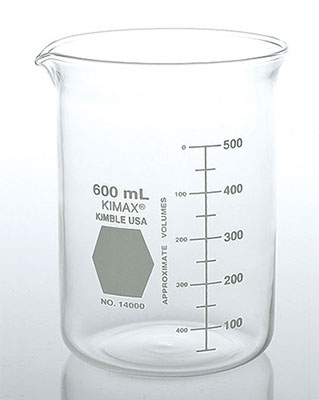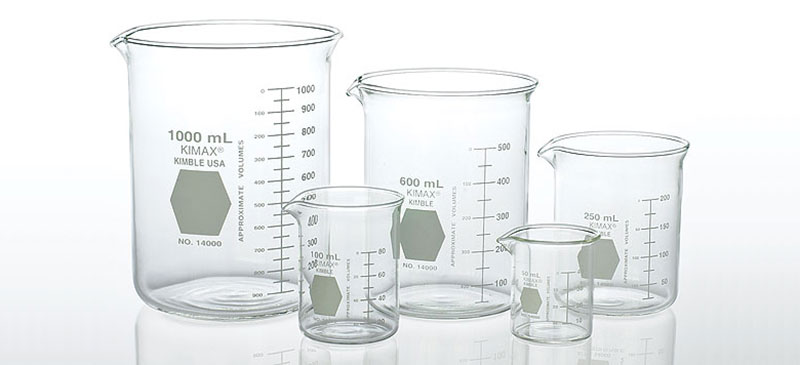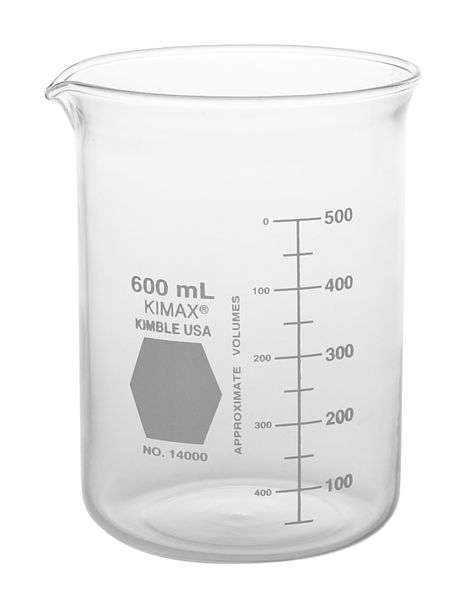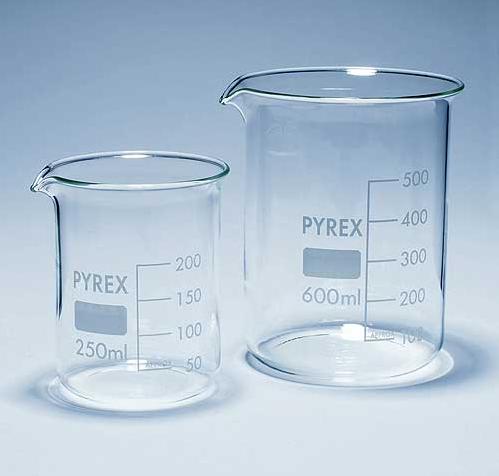Beaker (glassware)
A beaker is a simple glass device for various purposes in ( scientific ) laboratories. It refers to a cylindrical beaker above a beaded edge and usually has a spout. Laterally a rough volume scale is usually printed.
The beaker is adjacent to the test tube and the Erlenmeyer flask one of the glass vessels most commonly used in the laboratory.
The beaker is used for a variety of tasks in which a simple glass vessel is required, such as for collecting or mixing of liquids or attaching simple solutions. It is inexpensive, is easy thanks to the large opening filled and allowed to stir the contents, for example, with a glass rod. The transparent borosilicate glass used as a material in general is resistant to heat and most chemicals, so it made beakers are also suitable as a simple reaction vessel and also for heating. Beakers polypropylene are not heat resistant and less resistant to chemicals.
In the conventional beaker ( " wide / wide shape " ) is the ratio of height to diameter is usually about 1.4. This normal version with spout is sometimes referred to (especially in the English-speaking language area ) as " Griffin " shape. In beakers in the " high form " corresponds to the height usually about twice the diameter. This type is sometimes referred to as " Berzelius beaker ".
A beaker differs from a flask by its straight sidewall. The exception is the slightly conical " Phillips beaker ."
Beakers are available up to twenty liters in sizes from 1 ml.










